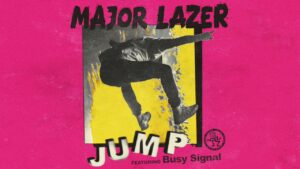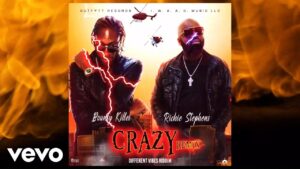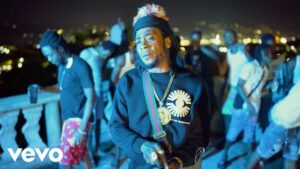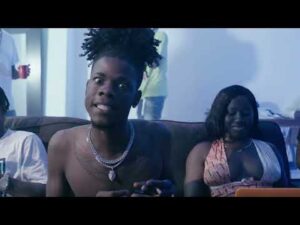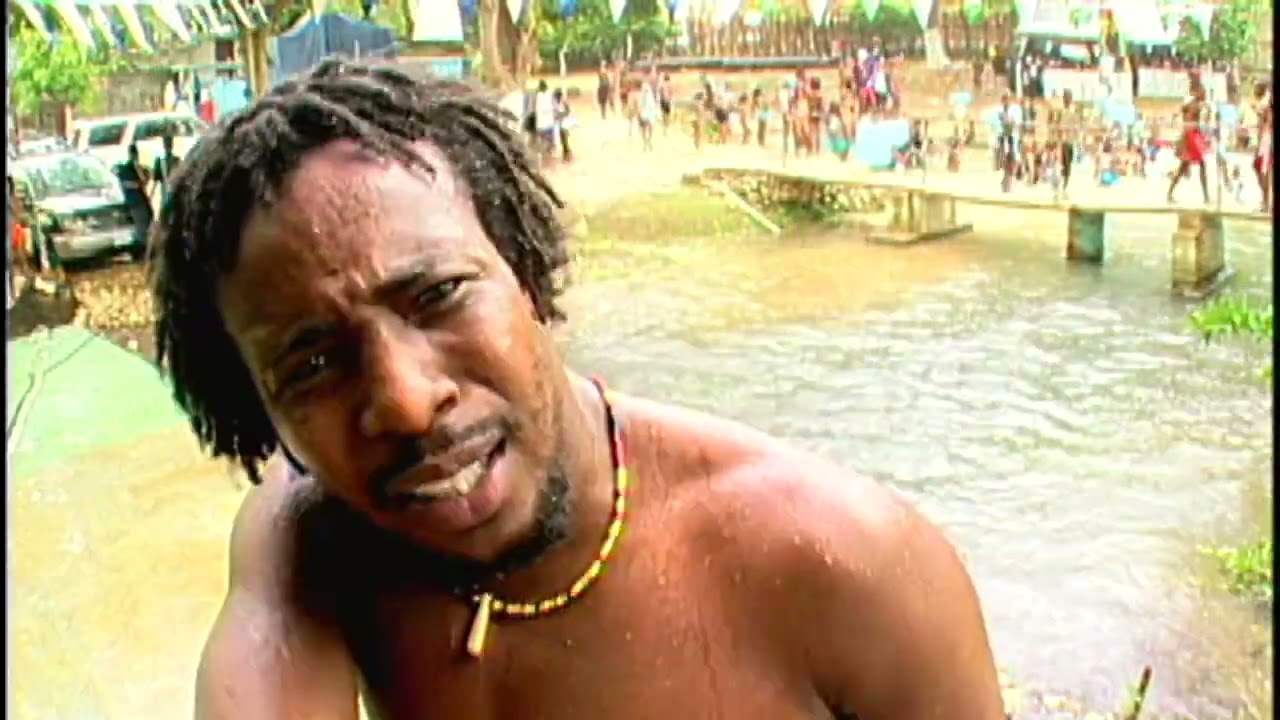
Frisco Kid “Tell Me Why” (2003)
2022
@LeoOReggio
Website: https://leosretroreggaestore.company.site/
I thoroughly enjoyed producing this video. Frisco is full of vibes and got all that I asked for to make this video exciting. We shot it in Portmore and at Caymanas Bay River.
Stephen Wray aka Frisco Kid aka Ancient Monarchy began to emulate leading DJs while still at school and was eventually given a chance on the microphone at smaller dances. While working in a garage in Kingston, a chance meeting with the owner of the Exodus Nuclear sound system led to his performing as the Paro Kid. He became the resident DJ for Exodus and subsequently went to King Jammy’s studio to record some specials, changing his name to Frisco Kid. As his career developed, he recorded ‘Dance Again’ at Donovan Germain’s Penthouse studio. Frisco Kid’s career prospects looked promising as a result of this release, but after the initial fervour died down, no further recordings surfaced. He returned to recording specials for the sound and it was at Black Scorpio in 1993 that his recording career took an upward turn. Confusion over studio time led Frisco Kid and DJ Terror Fabulous back to Penthouse, where he recorded ‘Big Speech’. His second break led to a number of hits, including ‘Wakey News’, ‘Yuh And Yuh Man’, ‘Tribulation’, ‘Yuh A Boom’, ‘Step Up In Life’, and ‘Gal A Di Clothes’. His notoriety led to an appearance at the 1995 Reggae Sunsplash festival where he captivated the crowds with exceptional performance. His success led to an alliance with Patrick Roberts, who enrolled Frisco Kid as part of the Shocking Vibes crew. The crew embarked on an international tour featuring Little Kirk, Silver Cat, Tanto Metro, Snagga Puss, and Beenie Man; the tour represented the debut performances in Europe for Silver Cat and Frisco Kid. The shows received rave receptions from both the critics and audiences alike. In 1996 Frisco Kid joined Buju Banton’s label, the newly formed Cell Block 321. The enterprise was designed to promote new talent and Frisco Kid’s career advanced with the release of the phenomenal ‘Video Light’. His success continued with ‘If Looks’ and the multi-combination hit ‘Matey Anthem’, alongside Mega Banton, Spragga Benz, Mad Cobra, General Degree, Gringo, and Johnny P. Many of his hits were featured on the excellent debut album, Finally.
Nineties dancehall front-runner, Frisco Kid, says come 2020, he will be seeking to bring back some authenticity to dancehall music. During his performance at a Gleaner staff meeting on Tuesday, the deejay says in recent times, fans have been requesting that he return to the music scene to “fix things”, as dancehall music has lost its love.
“Yuh see fi 2020, we a go channel back the music to how we know it should be because right now out there, music lost its value. Nobody nuh wah hear dancehall again coming from Jamaica, it’s all about the afrobeats and everything else. We know every era have a different energy and vibe innu but it all boil down to doing things in the right and proper manner,” he said. “Me wah di yute dem do good music, real music. We affi take a page outta the icon dem books. Look pan man like Freddie McGregor, from before me even born dem man deh a sing, and guess wah, me can go watch him at a concert right now in this day and age; and yuh still feel da energy and da love deh. The greats like Dennis Brown, Gregory Isaacs (RIP), Beres Hammond. Dem man deh make real, authentic music weh will never die.”
He went on to explain that contrary to popular belief, the subject matter of the songs being produced today is not usually the problem. He says he sees no issues with artistes singing about ‘gyal and guns’ but says the problem lies with how the artistes choose to relay their messages. “This generation have no love for themselves and so dem nah no love for anybody else either. Das why when dem sing, the music sound so. Nuh love nuh inna dem, they have no joy. Dem a glorify some thing weh nah benefit nobody. Me nuh say yuh can’t sing bout gyal and gun innu, but is not what yuh say, is how yuh say it,” he said. “Me do Big Speech from 1993, that’s some 26 years, and yet me can still sing da song deh today fi yuh pan stage and it rock yuh, and yuh enjoy it because it full a love and good energy.
“Dem time deh we a dweet fi di culture and the love of music. Nowadays, dem yute yah weh a do music do it because of what dem can achieve from it but, at the end of the day, it nuh have no moral and nuh value,” he continued. “Me expect dem likkle yute here now weh just a come into the business fi look and learn. We want dem to know that whatsoever dem do, dem must try do it good and in the right and proper manner that it can educate, uplift and sustain.”



